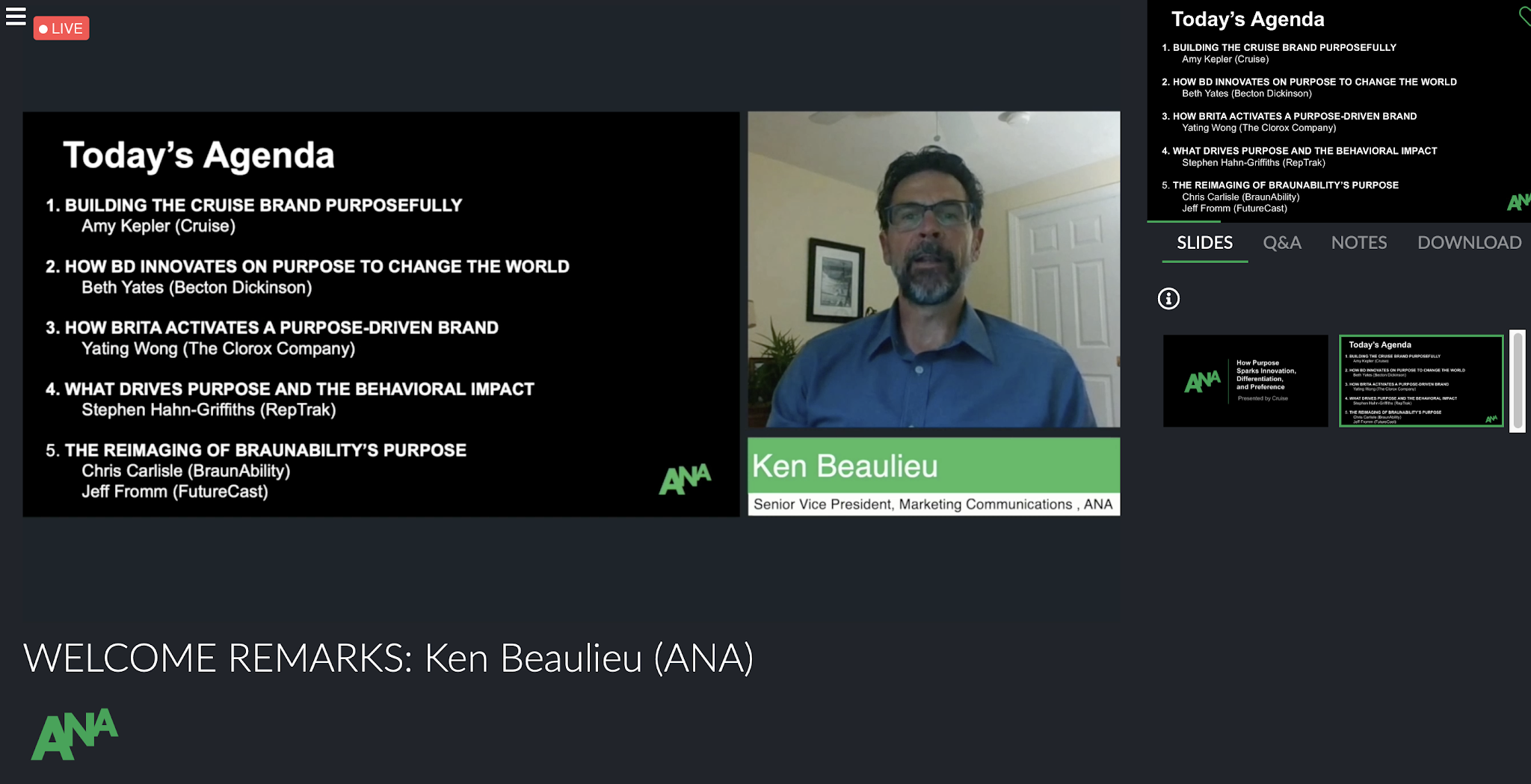ANA’s Digital Innovation @ Fordham University | Natasha Khemraj
Earlier this year on February 5th, in a pre-pandemic world, I attended the ANA’s Digital Innovation conference at Fordham University. During the conference I heard from a variety of digital marketing speakers in who discussed the latest challenges, innovations and opportunities in AI and AR. In some fashion, each speaker focused on how technology powers brands to connect with consumers through digital strategy and consumer engagement.
There were a total of seven speakers that day: Iday Shanawaz, Associate Partner, IBM IX; Erin Clift, Global Marketing and Partnerships, Waze; Arti Sahgal, Embedded Consultant - Senior Digital Marketing & Transformation Leader, Heineken USA; James Gregson, Head of Social Media Studio, LEGO; Ye Jin, Head of Marketing, Media Luxury, Airbnb; Anna Meshcherova, Growth Marketing Manager, Airbnb and Sarika Sangwan, Head of Financial Services, Pinterest.
Iday Shanawaz of IBM, the very first speaker of the day, prompted us with a question before beginning his lecture,
Marketing is changing. Organizations are changing. How do we keep it all human focused?
Marketing is an everchanging landscape. Emerging technologies, explosion of data & analytics, and shifting consumer preferences will lead us to a very different 2025. Some of the ways to achieve this are through consumers who are hyper connected and digital-first, increasing shift to addressable, programmatic media inventory, digital native brands with direct consumer relationships, a changing agency & consulting landscape, and continuing growth & complexity in the digital ecosystem.
In this changing marketing landscape, CMO’s of large complex organizations are most impacted and are directly leading the response to changes. More than three quarters of CMO’s suspect their business models and ways of working are threatened as organizations evolve from product-led to experience-led entities. 29% of a CMO’s budget was spent on marketing technology in 2019, the single largest area of investment and potential differentiation from peers. Today, over two thirds of CMOs say disruption is mainly led by innovative industry incumbents, placing the CMO at the center of reinvention and change. The solution here can be to build data strategy around responsible collection and ethical activation to create a “Mutually Equitable Relationship with Consumer” who will have increasingly more control such as more emphasis on privacy and ownership of consumer data. Iday concluded by emphasizing that, we should “embrace modern approaches, teams and skills to drive new ways of working that are focused on transparency, speed, and outcomes.”
Erin from Waze discussed how Waze is empowering the community to change the way the world moves. Erin pointed out that the Waze team has always put people at the center of their marketing strategy. This immediately hit home for me as Professor Barry Silverman taught us in his Relationship Building: The Business of Brands class that the ideal way to market was making your brand consumer centric and having every aspect of the business revolve around them. More than making their consumer the main focus, Waze was leveraging its marketing platform to engage & transform its customer base into a community that drives real-world impact (pun intended!) The Waze community is made up of 500K map editors, 53M monthly edits, 130M monthly users, 60M monthly reports, 1,000 translators, 54 languages, 1,300 city partners, and 70 countries. Their community is the most innovative part of Waze as they turn their learned and obtained consumer generated data into actionable insights to improve the Waze app.
Doing what has previously worked the year before can prove to be helpful to users and increase retention, like giving them the tools to self-mapping and self-organization. As Erin noted,
The emerging trends we have noticed are the rise of the cost of digital advertising, more people are using ad blockers, more people are opting out of behavioral targeting, and also we find that there is more brand clutter and ad blindness.
Both technical and tactile innovation and figuring out how to maximize infrastructure are keys to the future success of Waze.
Arti Sahgal from Heineken discussed driving consumers down the e-commerce purchase funnel and how to gauge true ROI. As we’ve learned in school, marketing leaders are consistently challenged more than ever to prove ROI and justify marketing investments. The role of CMO is basically becoming extinct as CMO’s are replaced every couple of years when they can’t speak to why the brand hasn’t grown at the predicted rate. The truth is that companies obsessed with customer experience are more profitable and see higher growth. Considering that there are more marketing channels and more ways to measure performance, industry standard methods and KPIs for measuring media performance aren't the most effective ways to gauge success. With data-driven performance marketing, we have more access to data than ever before which offers deeper analysis to determine which media are most valuable in boosting a brand’s online/offline revenue and informing better business decisions.
Data also helps to better target/re-target, hyper-personalize and optimize marketing investments across channels in order to enhance performance, while increasing value to customers and driving them down the e-commerce purchase funnel to conversion.
Being brand focus involves one way communications while expanded focus is a direct response involving interaction with consumers. This is performance marketing,
Arti stated as she began describing activation along the conversion funnel. Separated into three levels, upper, middle, and lower, the full funnel approach serves the right message to right consumer.
This conference was held a month before New York went into lockdown due to COVID-19. Industries are affected in a way they never have been before and marketing will need to shift or rather adapt to the new normal, which is still being figured out. How and where we reach consumers and how they engage with us might change but as Pinterest’s Sarika Sangwan quoted,
If you want positive things to come out of internet technology, they have to be deliberately engineered that way.




